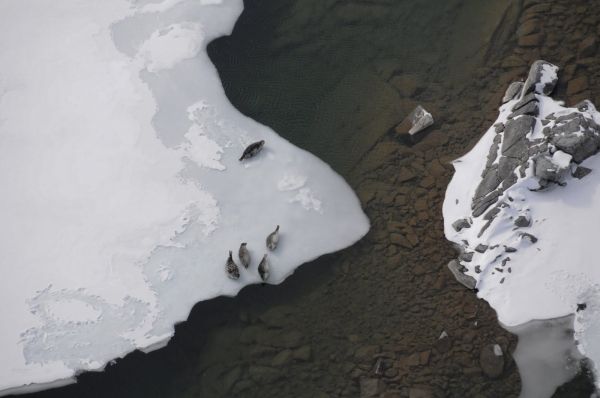Hundreds of harbor seals live in Iliamna Lake, the largest body of freshwater in Alaska and one of the most productive systems for sockeye salmon in the Bristol Bay region.
These lake seals are a robust yet highly unusual and cryptic posse. Although how the seals first colonized the lake remains a mystery, it is thought that sometime in the distant past, a handful of harbor seals likely migrated from the ocean more than 50 miles (80 kilometers) upriver to the lake, where they eventually grew to a consistent group of about 400. These animals are important for Alaska Native subsistence hunting and hold a top spot in the lake’s diverse food web.
Scientists now know these “colonizing” seals must have found the lake suitable enough to stay and raise their offspring. Generations later, the lake-bound seals appear to be a genetically distinct population from their ocean-dwelling cousins — even though they are still managed as part of the larger Eastern Pacific harbor seal population.
Read more at University of Washington
Image: Five seals rest on the frozen surface of Iliamna Lake in Alaska. CREDIT: Dave Withrow


